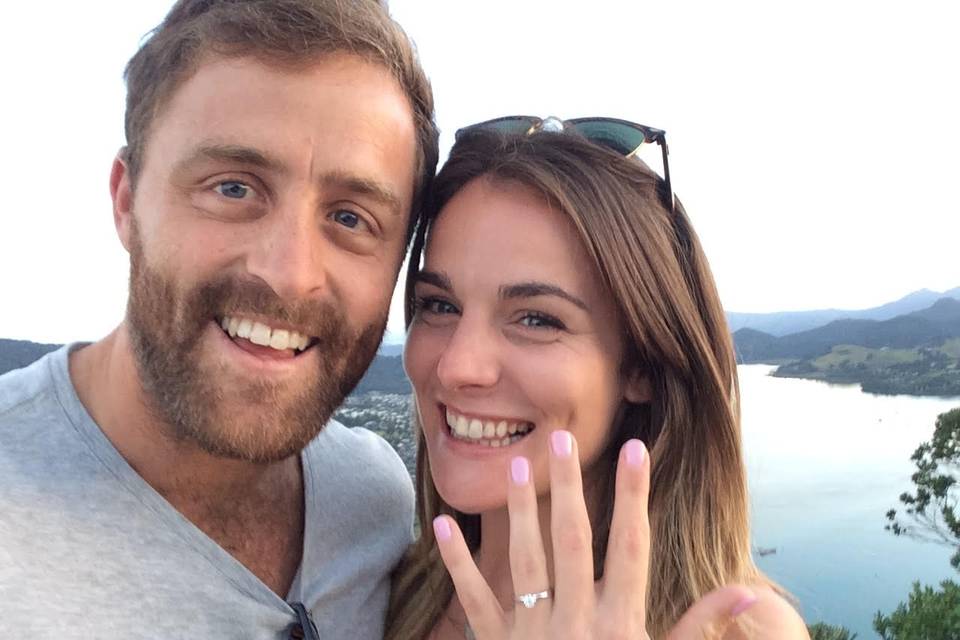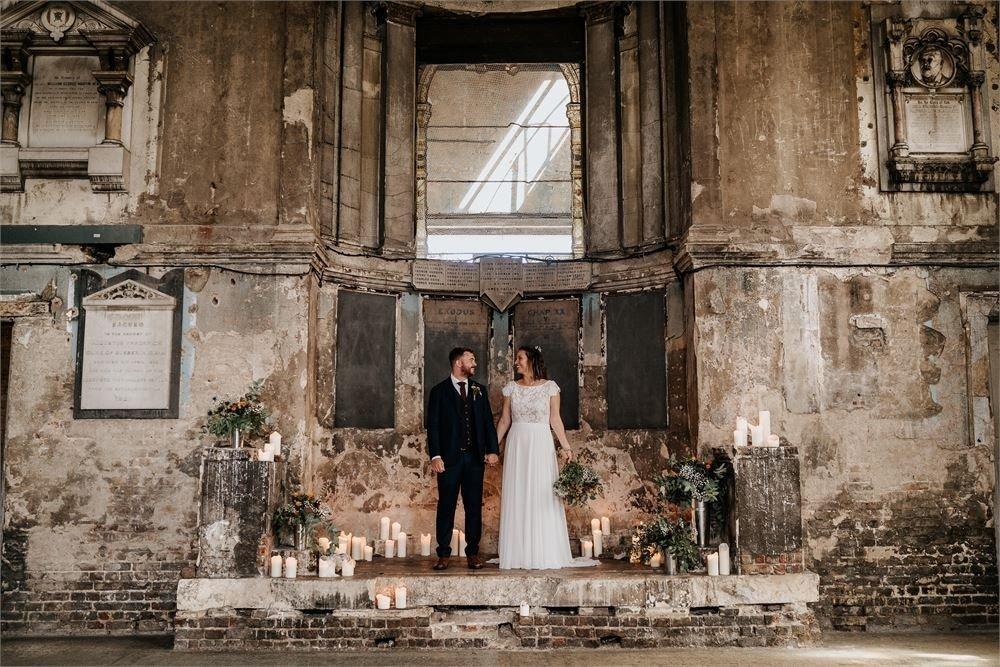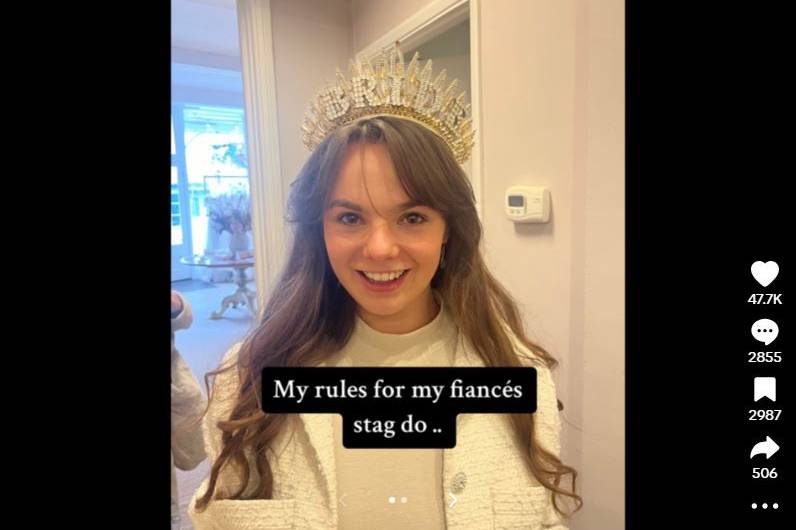Meet the Postponed Bride Who’s Petitioning to Extend the 12-Month Giving Notice Period for Weddings
Thousands of couples could see their original giving notice period expire before they’re able to marry due to the Coronavirus pandemic, but one bride-to-be has taken matters into her own hands…
We have included third party products to help you navigate and enjoy life’s biggest moments. Purchases made through links on this page may earn us a commission.


Thousands of couples intending to marry in the UK have had to put their weddings on hold due to Coronavirus – in fact, a recent study by Hitched found that 76% of couples that were due to marry in summer 2020 are postponing. For many of them, this means getting married after their 12-month giving notice period has expired.
Giving notice of marriage typically costs £35 but can increase depending on the immigration status of the parties involved or if a previous divorce took place abroad. Giving notice also involves going to the registry office in person, something that is simply not possible for couples at this time, particularly if they’re currently living abroad.
What is ‘Giving Notice’?
Giving notice is a legal requirement for civil marriage and civil partnership ceremonies in the UK. In order to give notice, you first need to decide where you would like to hold your ceremony. Once you’ve chosen a licensed venue or registry office, you need to go to your local registry office and sign a legal statement confirming your intention to marry or form a civil partnership and answer some basic questions about yourselves.
You will both need to go to the registry office and if you live in different counties, you will need to each go to your own local office to give notice, even if they are not in the county you intend to marry in. You will need to have lived in the area for more than seven days before giving notice there. You must give notice at least 29 days before your wedding and hold the ceremony within 12 months of giving notice or the notice will expire.
When you make your appointment to give notice, check with your local council exactly which documents you need to take with you. You generally need a proof of address such as a utility bill, a birth certificate, your previous partner’s death certificate if you are widowed and a decree absolute if you are divorced.
READ MORE: How to Get Married: Your Step-by-Step Guide
Can the Giving Notice Period be Extended?
To address the issues couples are facing with giving notice in light of the Coronavirus situation, a petition has been started in the hope that notice periods can be extended. The petition’s creator, Sarah Godsell – who currently resides in New Zealand with her partner – explains why starting the petition was so important to her.
“Just 29 days before our wedding (16th April), we had to postpone. We were happy to make the decision and join the world to unite against COVID-19. It was the right thing to do and we don’t regret it. After we postponed, the UK went into lockdown and international air travel stopped anyway.
“We were forced to postpone our wedding to the 26th November 2020 and we have very recently postponed again to 29th April 2021, as the world continues to need time to heal. Our marriage ‘give notice’ period expires on the 7th October 2020. This means we will now be unable to get legally married at our wedding. Although the registration services have offered us a refund, we want more than just a big expensive party, we want to get legally married.”

Although Sarah is British, her partner, Steve, is a New Zealand national and both are currently living in New Zealand, making visiting the registry office in the UK almost impossible due to the current restrictions. “Not being in the UK and then marrying a non-UK citizen makes it a pretty stringent process,” she explained, “which is why we can’t simply give notice again like we have been advised to do by our registry office.
“Just for perspective, some countries allow you to give notice online. For our situation, to give notice in the UK, we would both have to be present at the appointment, be in the country for seven days prior to giving notice and give notice at least 70 days before our ceremony. We do not have the time frames to do this – these are unprecedented times, who knows when we will be able to fly again?”
Although Sarah acknowledges that a lot of couples won’t be facing the same situation she and fiancé Steve are, she believes that for exceptional circumstances like this, allowances should be made. “Steve and I met in 2015 in Vietnam and were a two-week holiday romance. We have overcome so many international barriers like long distance and visas. I wasn’t going to let this defeat us.
“I understand most couples won’t be in the same situation as Steve and I, but I believe there must be other couples out there who have also had to postpone their wedding due to COVID-19, and have had to postpone to a date outside of their notice period. I started the petition for all of us. I truly believe these types of time-sensitive processes should be extended during these exceptional circumstances. As they have been for MOTs and even visas in the UK.
“I know to some people it might seem like there are bigger things going on. But not reviewing decisions like these have a huge impact on people’s significant life events.
“I know this is something the General Register Office are aware of and hopefully, this petition will aid the work already being done to sort this out for couples.”

Image: Sarah Godsell
Sarah’s petition gathered over 9,000 signatures in less than a week and needs just 262 more, at the time of writing, in order to receive a response from the government and up to 10,000 to be considered for debate. You can sign the petition here.
What to Do If Your New Wedding Date Falls Outside of Your Notice Period

Speak to a representative at the registry office you gave notice at and tell them about your situation. You should receive a refund for your original notice period, although you will need to go through the process again for your new date.
Before giving notice for a second time make sure you have your new wedding date confirmed with your venue and officiant to avoid the notice period expiring for a second time. You also need to make sure that you’re both able to attend on the same day if you’re giving notice at the same office and that you have all your documents in order, just as you will have done the first time you gave notice of your intention to marry.
For more information on giving notice of marriage and what you need to bring, visit the website of your local council or the official giving notice page at gov.uk.
What to Do If You Have Had to Postpone Your Church Ceremony

In order to marry in a Church of England ceremony, you must have your banns read on three Sundays during the three months before your wedding. Banns are simply a statement read during a service, notifying the congregation of your intention to marry. Traditionally, this gives anyone a chance to put forward a reason why you may not be lawfully married but mostly it offers up the chance for the congregation to pray for the success of the marriage. You do not need to be present for the reading of the banns, although it is encouraged.
If you need to postpone your wedding, your church should delay your banns being read. If you’re marrying outside of your parish, make sure you notify your home parish as your banns will need to be read there too.
If one of you is a foreign national or you live abroad, you will also need a Superintendent Registrar’s Certificate in order to marry in church and so you will need to get in touch with your local registry office to organise this ahead of your new wedding date.
You can find more information on the legal requirements for a church ceremony here.








